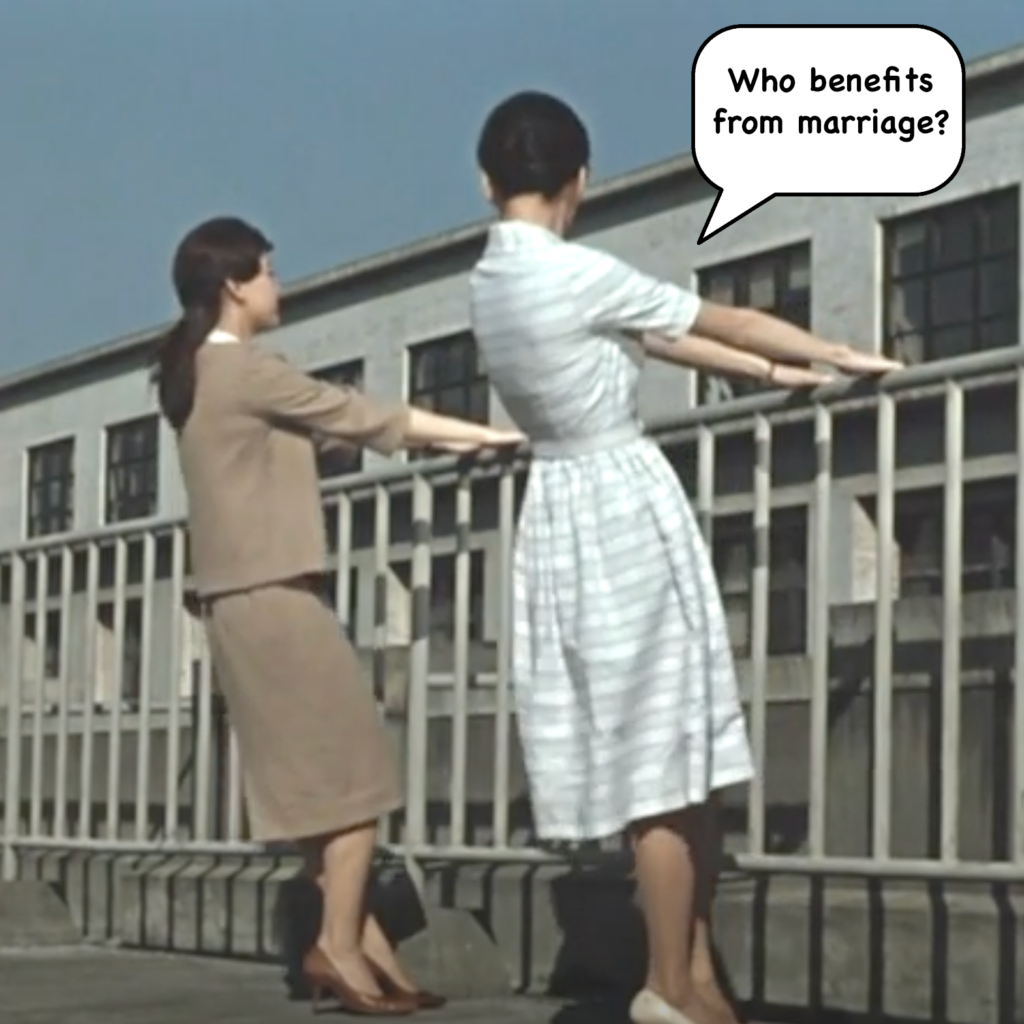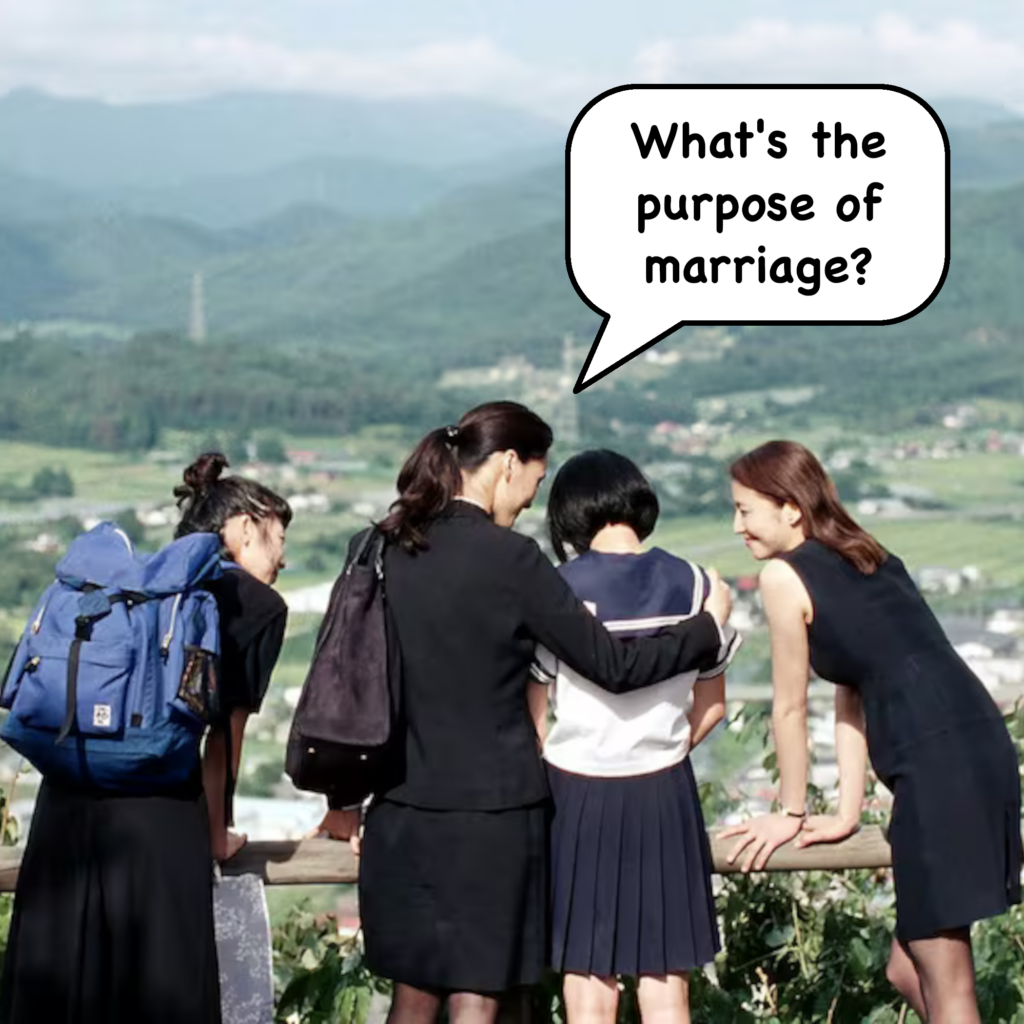| Nicole Rojas-Oltmanns |

Late Autumn plays on glorious 35mm at the Trylon Cinema from Friday, December 20th, through Sunday, December 22nd. Visit trylon.org for tickets and more information.
Japan seems to have a magnetic pull for educated Millennials. The USA, it seems, is the antithesis of the orderly, tidy, traditional, technologically advanced, and ritualistic culture of Japan in the minds of many. Whenever anyone begins recounting the many splendors of Japan, I think of Kore-eda films, with their modern, messy, and complex characters living in unkept, cluttered homes, trying to solve problems not dissimilar to the people in my own life. In contrast, the films of Ozu, reinforce the tidy ritualistic perception of Japan. Within the formal, he was able to show the chaos, conflict, and comedy more clearly as a contrast to the readily visible.
However, both Ozu and Kore-eda attempt to highlight the lives of women. Some male directors don’t even try. Both also show us the relationships between women of different generations. This view and depth are rare. Created 55 years apart, Late Autumn and Our Little Sister both even pass the Bechdel-Wallace test.
Late Autumn (1960, directed by Yasujirô Ozu)
Mother, Akiko, lives with her adult daughter, Ayako. After a remembrance service for her husband, three of his male friends begin an obsessive matchmaking endeavor for Ayako, who they believe must get married soon. In truth, all three men were interested in Akiko as young men and still are. They speak about both mother, Akiko, and daughter, Ayako, as very attractive and express a desire for her which is based entirely on the way she looks.
This is a new turn. As a younger woman, Ayako did not seem to concern them at all. Ozu shows us a view many women are familiar with, girlhood is a mother’s responsibility. As the needs of girls are ignored by most men, once of age, men take notice of young women now capable of being useful to men.
Ayako does not want to get married. She wants to continue living with her mother, having independence by working in an office, and being free from men. At first, she refuses, but eventually agrees to meet the prospective suitor when a colleague introduces them. Her refusals become more pronounced as time goes on. The men ask, “Won’t you be lonely?”
We also see the relationships of the men and their wives. The wives know the men are attracted to Akiko and find it amusing. After many years of raising children and serving them, it is fun to watch the men’s frustration about not getting what they want. When one of the men complains about the failed matchmaking and the arguments between his daughter and son-in-law, his wife says, “In marriage, you eventually just give up.”
One of the three men, a widower, seeks marriage with Akiko. Ayako’s friend and colleague, Yuriko, at first claims, “Marriage is the worst,” but later encourages both Akiko and Ayako to get married. Akiko agrees to marry if Ayako does. Akiko tricks her daughter into marriage, so that she herself can remain free and to end the constant matchmaking drama from the men. For all of the men’s scheming though, it is the women who drive the action in this film.

Our Little Sister (2015, directed by Hirokazu Kore-eda)
Three adult sisters attend their estranged father’s funeral and find a younger half-sister, Suzu, now parentless. The sisters realize that Suzu cared for their father while he was dying and offer her a room in the house they all share.
The oldest sister, Sachi, took over caregiving at a young age because their father left for another woman and their mother gave up. This role is often thrust upon oldest daughters. Sachi sees that Suzu has had to grow up too quickly and tries to protect her childhood. When Suzu meets her older sisters’ mother at a memorial service, their mother confesses, “[Sachi] grew up instead of me.”
As their stories open up, we see the depth and battles of each sister. Their great-aunt attempts to enforce older ways of thinking, but none of the sisters gets married or moves out or makes plans to do so over the course of the film. Sachi is given an opportunity to follow a man to the USA, and refuses.
The sisters drive the plot, growing and changing as they reflect on the past and choose a different future.
Tradition and Modernity
It feels like you could step into Our Little Sister. We want to be friends with them, to live in that house full of women. Late Autumn feels exaggerated and formal. There is a distance. From a distance, one can see the whole picture.
More than ever before, many young people are choosing not to get married. We have the same questions as Ozu and Kore-eda:
What is the purpose of marriage?
Who benefits from marriage?
What do women lose in marriage?
Constantly, tradition and modernity are rubbing against each other as the two generations clash in Late Autumn and four generations show each other the way in Our Little Sister. With each other, they retain their power and control while choosing the traditions that do not limit their freedom. A new way forward.
Edited by Olga Tchepikova-Treon
